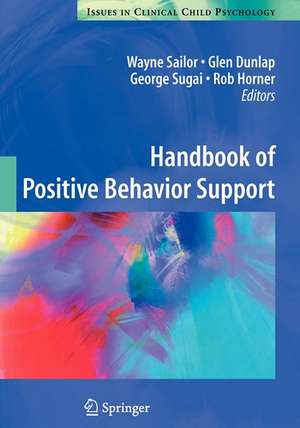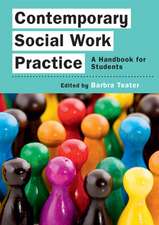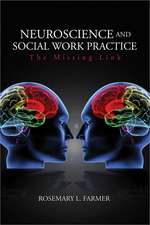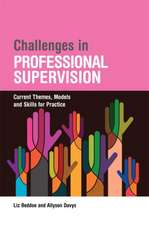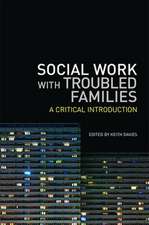Handbook of Positive Behavior Support: Issues in Clinical Child Psychology
Editat de Wayne Sailor, Glen Dunlap, George Sugai, Rob Horneren Limba Engleză Paperback – 22 dec 2010
The Handbook of Positive Behavior Support gathers into one concise volume the many elements of this burgeoning field and organizes them into a powerful, dynamic knowledge base – theory, research, and applications. Within its chapters, leading experts, including the primary developers and researchers of PBS: (1) Review the origins, history, and ethical foundations of positive behavior support. (2) Report on applications of PBS in early childhood and family contexts, from Head Start to foster care to mental health settings to autism treatment programs. (3) Examine school-based PBS used to benefit all students regardless of ability or conduct. (4) Relate schoolwide PBS to wraparound mental health services and the RTI (response to intervention) movement. (5) Provide data and discussion on a variety of topics salient to PBS, including parenting issues, personnel training, high school use, poorly functioning schools, and more.
This volume is an essential resource for school-based practitioners as well as clinicians and researchers in clinical child, school, and educational psychology.
| Toate formatele și edițiile | Preț | Express |
|---|---|---|
| Paperback (1) | 1346.30 lei 3-5 săpt. | +62.69 lei 7-11 zile |
| Springer Us – 22 dec 2010 | 1346.30 lei 3-5 săpt. | +62.69 lei 7-11 zile |
| Hardback (1) | 1958.85 lei 6-8 săpt. | |
| Springer Us – 27 oct 2008 | 1958.85 lei 6-8 săpt. |
Din seria Issues in Clinical Child Psychology
- 5%
 Preț: 372.03 lei
Preț: 372.03 lei - 18%
 Preț: 722.58 lei
Preț: 722.58 lei - 18%
 Preț: 2116.32 lei
Preț: 2116.32 lei - 5%
 Preț: 2144.78 lei
Preț: 2144.78 lei - 5%
 Preț: 1318.81 lei
Preț: 1318.81 lei - 18%
 Preț: 1662.70 lei
Preț: 1662.70 lei - 5%
 Preț: 1444.63 lei
Preț: 1444.63 lei - 18%
 Preț: 1831.42 lei
Preț: 1831.42 lei - 5%
 Preț: 1131.72 lei
Preț: 1131.72 lei - 15%
 Preț: 645.79 lei
Preț: 645.79 lei - 5%
 Preț: 1437.86 lei
Preț: 1437.86 lei - 18%
 Preț: 1835.21 lei
Preț: 1835.21 lei - 18%
 Preț: 2105.58 lei
Preț: 2105.58 lei - 5%
 Preț: 1941.84 lei
Preț: 1941.84 lei - 18%
 Preț: 1824.95 lei
Preț: 1824.95 lei - 5%
 Preț: 1343.50 lei
Preț: 1343.50 lei - 18%
 Preț: 1003.52 lei
Preț: 1003.52 lei - 5%
 Preț: 721.19 lei
Preț: 721.19 lei - 5%
 Preț: 1429.44 lei
Preț: 1429.44 lei - 5%
 Preț: 719.59 lei
Preț: 719.59 lei - 15%
 Preț: 647.27 lei
Preț: 647.27 lei - 18%
 Preț: 1234.14 lei
Preț: 1234.14 lei - 18%
 Preț: 1842.16 lei
Preț: 1842.16 lei - 18%
 Preț: 949.42 lei
Preț: 949.42 lei - 5%
 Preț: 1130.43 lei
Preț: 1130.43 lei - 15%
 Preț: 591.29 lei
Preț: 591.29 lei - 18%
 Preț: 1126.52 lei
Preț: 1126.52 lei - 18%
 Preț: 950.52 lei
Preț: 950.52 lei - 18%
 Preț: 1245.84 lei
Preț: 1245.84 lei
Preț: 1346.30 lei
Preț vechi: 1417.15 lei
-5% Nou
Puncte Express: 2019
Preț estimativ în valută:
257.60€ • 268.99$ • 212.73£
257.60€ • 268.99$ • 212.73£
Carte disponibilă
Livrare economică 25 martie-08 aprilie
Livrare express 11-15 martie pentru 72.68 lei
Preluare comenzi: 021 569.72.76
Specificații
ISBN-13: 9781441981356
ISBN-10: 1441981357
Pagini: 850
Ilustrații: XVII, 775 p. 63 illus. With 2009.
Dimensiuni: 178 x 254 x 48 mm
Greutate: 1.38 kg
Ediția:2009
Editura: Springer Us
Colecția Springer
Seria Issues in Clinical Child Psychology
Locul publicării:New York, NY, United States
ISBN-10: 1441981357
Pagini: 850
Ilustrații: XVII, 775 p. 63 illus. With 2009.
Dimensiuni: 178 x 254 x 48 mm
Greutate: 1.38 kg
Ediția:2009
Editura: Springer Us
Colecția Springer
Seria Issues in Clinical Child Psychology
Locul publicării:New York, NY, United States
Public țintă
Professional/practitionerCuprins
Overview and History of Positive Behavior Support.- The Intellectual Roots of Positive Behavior Support and Their Implications for Its Development.- Early Childhood, Family, And Community.- Positive Behavior Support and Early Intervention.- Toward an Ecological Unit of Analysis in Behavioral Assessment and Intervention With Families of Children With Developmental Disabilities.- Positive Behavior Support and Early Intervention for Young Children With Autism: Case Studies on the Efficacy of Proactive Treatment of Problem Behavior.- Integrating a Positive behavior Support Approach Within Head Start.- Empirically Supported Intervention Practices for Autism Spectrum Disorders in School and Community Settings: Issues and Practices.- A Programwide Model for Supporting Social Emotional Development and Addressing Challenging Behavior in Early Childhood Settings.- Integrating PBS, Mental Health Services, and Family-Driven Care.- Optimistic Parenting: Hope and Help for Parents With Challenging Children.- Families Facing Extraordinary Challenges in Urban Communities: Systems-Level Application of Positive Behavior Support.- Delivering behavior Support in the Foster Care System.- Schoolwide.- Defining and Describing Schoolwide Positive Behavior Support.- Sustainability of Systems-Level Evidence-Based Practices in Schools: Current Knowledge and Future Directions.- Increasing Family Participation Through Schoolwide Positive Behavior Supports.- Primary-Tier Interventions and Supports.- Secondary-Tier Interventions and Supports.- Function-Based Supports for Individual Students in School Settings.- Implementation of Schoolwide Positive Behavior Support in Urban Settings.- Positive Behavior Support in Alternative Education, Community-Based Mental Health, and Juvenile Justice Settings.- Behavior Supports in Nonclassroom Settings.- Facilitating Academic Achievement Through Schoolwide Positive behavior Support.- Using a Problem-Solving Model to Enhance Data-Based Decision Making in Schools.- Finding a direction for High School Positive Behavior Support.- Systems Change and the Complementary Roles of In-Service and Preservice Training in Schoolwide Positive Behavior Support.- New Directions.- Sustaining Positive behavior Support in a Context of Comprehensive School Reform.- Completing the Continuum of Schoolwide Positive behavior Support: Wraparound as a Tertiary-Level Intervention.- Implementing Function-Based Support Within Schoolwide Positive Behavior Support.- Response to Intervention and Positive Behavior Support.- Erratum.
Recenzii
From the reviews:
“Provides a fascinating insight into ways in which positive behaviour support has been, and could be, developed and applied. … if you want to see the potential range of application of positive behaviour support, and the various components which may be involved, then you will find this fascinating. And if you are interested in the theoretical trajectory which has been followed by behaviourism, this book will give you plenty of food for thought.” (Jenny Webb, International Journal of Positive Behavioural Support, Vol. 2 (1), Spring, 2012)
“Provides a fascinating insight into ways in which positive behaviour support has been, and could be, developed and applied. … if you want to see the potential range of application of positive behaviour support, and the various components which may be involved, then you will find this fascinating. And if you are interested in the theoretical trajectory which has been followed by behaviourism, this book will give you plenty of food for thought.” (Jenny Webb, International Journal of Positive Behavioural Support, Vol. 2 (1), Spring, 2012)
Notă biografică
George Sugai, Ph.D., is Carole J. Neag Endowed Professor in Special Education in the Neag School of Education at the University of Connecticut, with expertise in behavior analysis, classroom and behavior management, schoolwide discipline, function-based behavior support, positive behavior support, and educating students with emotional and behavioral disorders. He has been a teacher in the public schools, treatment director in a residential program, and program administrator. Dr. Sugai conducts applied school and classroom research and works with schools to translate research into practice. He is currently codirector of the Center on Positive Behavioral Interventions and Supports at the University of Connecticut and University of Oregon.
Rob Horner, Ph.D., is professor of special education at the University of Oregon. Dr. Horner brings a 25-year history of research, grants management, and systems change efforts related to school reform and positive behavior support. Dr. Horner haspublished more than 150 professional papers and 6 texts. He has directed more than $20 million dollars in federal grants, and currently codirects the OSEP Technical Assistance Center on Positive Behavioral Interventions and Supports and the OSEP Research and Demonstration Center on Schoolwide Behavior Support. Dr. Horner also codirects the Positive Behavior Research and Support research unit at the University of Oregon. During the past 10 years Dr. Horner has directed projects working directly with schools and school administrators in the development of systems for embedding schoolwide systems of positive behavior support.
Glen Dunlap, Ph.D., is a research professor in the Division of Applied Research and Educational Support at the University of South Florida, where he works on several research, training, and demonstration projects in the areas of positive behavior support, child protection, early intervention, developmental disabilities and family support. Dr. Dunlap has been involved with individuals with disabilities for more than 30 years and has served as a teacher, administrator, researcher, and university faculty member. He has directed numerous research and training projects and has been awarded dozens of federal and state grants to pursue this work. He has authored more than 175 articles and book chapters, coedited four books, and served on 15 editorial boards. Dr. Dunlapwas a founding editor of the Journal of Positive Behavior Interventions and was recently named the editor of Topics in Early Childhood Special Education. In 2005, he moved to Reno, Nevada, where he continues to work on research and training projects as a member of the faculty at the University of South Florida.
Wayne Sailor, Ph.D., is a Professor in the Department of Special Education, School of Education, University of Kansas; a Senior Scientist with the Beach Center on Disability, Life Span Institute, University of Kansas; and a Courtesy Professor with the Department of Applied Behavioral Science, University of Kansas. Dr. Sailor’s focus of interests are full integration of students with severe disabilities through school restructuring processes; and service integration strategies for health, social, and educational services for all children at the school site. He has done extensive research on schoolwide applications of positive behavior support and, in particular, uses of empowerment evaluation in whole school reform. His most recent research is focused on a structural school reform model call the schoolwide applications model (SAM), which is being field tested in the Ravenswood City School District, East Palo Alto, California, and in the New Orleans, Louisiana Recovery School District.
Rob Horner, Ph.D., is professor of special education at the University of Oregon. Dr. Horner brings a 25-year history of research, grants management, and systems change efforts related to school reform and positive behavior support. Dr. Horner haspublished more than 150 professional papers and 6 texts. He has directed more than $20 million dollars in federal grants, and currently codirects the OSEP Technical Assistance Center on Positive Behavioral Interventions and Supports and the OSEP Research and Demonstration Center on Schoolwide Behavior Support. Dr. Horner also codirects the Positive Behavior Research and Support research unit at the University of Oregon. During the past 10 years Dr. Horner has directed projects working directly with schools and school administrators in the development of systems for embedding schoolwide systems of positive behavior support.
Glen Dunlap, Ph.D., is a research professor in the Division of Applied Research and Educational Support at the University of South Florida, where he works on several research, training, and demonstration projects in the areas of positive behavior support, child protection, early intervention, developmental disabilities and family support. Dr. Dunlap has been involved with individuals with disabilities for more than 30 years and has served as a teacher, administrator, researcher, and university faculty member. He has directed numerous research and training projects and has been awarded dozens of federal and state grants to pursue this work. He has authored more than 175 articles and book chapters, coedited four books, and served on 15 editorial boards. Dr. Dunlapwas a founding editor of the Journal of Positive Behavior Interventions and was recently named the editor of Topics in Early Childhood Special Education. In 2005, he moved to Reno, Nevada, where he continues to work on research and training projects as a member of the faculty at the University of South Florida.
Wayne Sailor, Ph.D., is a Professor in the Department of Special Education, School of Education, University of Kansas; a Senior Scientist with the Beach Center on Disability, Life Span Institute, University of Kansas; and a Courtesy Professor with the Department of Applied Behavioral Science, University of Kansas. Dr. Sailor’s focus of interests are full integration of students with severe disabilities through school restructuring processes; and service integration strategies for health, social, and educational services for all children at the school site. He has done extensive research on schoolwide applications of positive behavior support and, in particular, uses of empowerment evaluation in whole school reform. His most recent research is focused on a structural school reform model call the schoolwide applications model (SAM), which is being field tested in the Ravenswood City School District, East Palo Alto, California, and in the New Orleans, Louisiana Recovery School District.
Textul de pe ultima copertă
A revolution in working with difficult students began during the 1980s, with a dramatic shift away from dependence on simply punishing bad behavior to reinforcing desired, positive behaviors of children in the classroom. With its foundation in applied behavior analysis (ABA), positive behavior support (PBS) is a social ecology approach that continues to play an increasingly integral role in public education as well as mental health and social services nationwide.
The Handbook of Positive Behavior Support gathers into one concise volume the many elements of this burgeoning field and organizes them into a powerful, dynamic knowledge base – theory, research, and applications. Within its chapters, leading experts, including the primary developers and researchers of PBS:
The Handbook of Positive Behavior Support gathers into one concise volume the many elements of this burgeoning field and organizes them into a powerful, dynamic knowledge base – theory, research, and applications. Within its chapters, leading experts, including the primary developers and researchers of PBS:
- Review the origins, history, and ethical foundations of positive behavior support.
- Report on applications of PBS in early childhood and family contexts, from Head Start to foster care to mental health settings to autism treatment programs.
- Examine school-based PBS used to benefit all students regardless of ability or conduct.
- Relate schoolwide PBS to wraparound mental health services and the RTI (response to intervention) movement.
- Provide data and discussion on a variety of topics salient to PBS, including parenting issues, personnel training, high school use, poorly functioning schools, and more.
Caracteristici
Offers, in one concise volume, the many elements of the burgeoning field of positive behavior support (PBS) and organizes them into a powerful, dynamic knowledge base, including theory, research, and applications Reviews the origins, history, and ethical foundations of PBS Relates schoolwide PBS that can be implemented to benefit all students – regardless of level of ability or conduct Reports on applications of PBS in early childhood and family contexts Examines related topics salient to PBS, including parenting issues, personnel training, use in high schools, poorly functioning schools, and so forth
